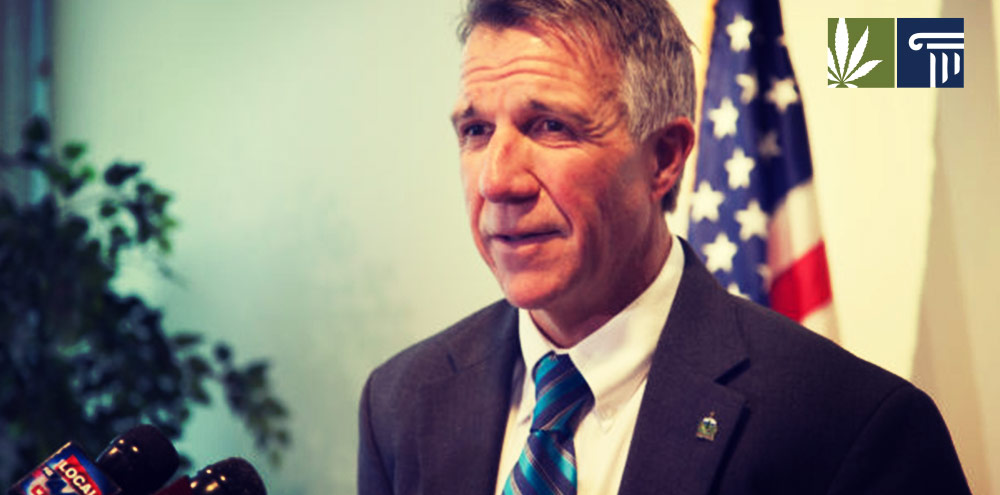Vermont became the eleventh state in the US to legalize adult-use cannabis sales after Gov. Phil Scott allowed Senate Bill 54 to take effect without his signature.
Vermont legalized marijuana possession of up one ounce and cultivation of two plants for adults 21 and older in 2018 but the law change did not allow for commercial production or sales. Gov. Scott vetoed an earlier version of the 2018 bill before coming around to a revised version negotiated with lawmakers.
Each chamber of Vermont’s legislature approved its own version of an adult-use legal marijuana sales bill. The two bills were then crafted into a single piece of legislation through the efforts of bicameral conference committee though this effort was delayed by the coronavirus outbreak. The resulting bill was then approved by the legislature and passed on to Gov. Scott who allowed the veto deadline to pass.
Senate Bill 54 sets excise taxes at 30 percent and establishes the Cannabis Control Commission (CCC) as the state body responsible for issuing licenses for marijuana businesses. It will take over the Department of Public Safety’s current responsibilities for Vermont’s medical marijuana program.
It sets a potency limit of 30 percent THC on marijuana flower, while oils are allowed up to 60 percent THC. Flavored vape cartridges will be prohibited though other vaping products are allowed.
The legislation takes effect immediately though the CCC must decide on licensing rules and regulations before retail sales can start. The bill stipulates though that marijuana dispensary licenses must be issued prior to October 1, 2022.
Gov. Scott is skeptical of allowing legal cannabis sales in Vermont and remained noncommittal right up until he finally announced he would not stand in the bill’s way. Not only that, on the same day the governor signed a separate bill into law to facilitate automatic expungements for low-level marijuana possession convictions prior to January 1, 2021.
One of Scott’s initial concerns about allowing legal cannabis sales in Vermont is that it would lead to more impaired driving, though such a fear isn’t yet backed up by science. The bicameral conference committee nonetheless attempted to address these concerns in the final bill, as well as including provisions which mean local authorities must opt in to have marijuana dispensaries operate in its jurisdictions. Scott then threw the bicameral conference committee a curve ball by stating the proposed bill does not adequately address social equity and racial justice in the legal cannabis industry, which some lawmakers felt was mainly a ruse to block the legislation.
Ultimately though, Scott decided to let the bill take effect and instead offered suggestions on how lawmakers could improve the legislation in the next session such as “creating a social equity applicant category for cannabis establishment licenses; a 50 percent licensing fee waiver for these applicants; and additional technical and financial supports.”
He went on to emphasize that “justice should be foundational to our work, not an add-on to be figured out secondary to commercial or other interests.”
Gov. Scott’s letter to lawmakers goes on to detail further concerns about vaping products, though a recent study suggests states with legal cannabis markets report fewer cases of vaping illnesses. He also states the possibility of child or youth-friendly cannabis marketing has still not been sufficiently addressed.
Given Scott’s long list of unresolved issues with the adult-use marijuana sales bill, speculation abounds he decided to let the bill take effect in order to fend off lines of attack from his reelection rival, Lt. Gov David Zuckerman (D), who is a vocal supporter of the legislation.
Vermont Attorney General Thomas J. Donovan Jr. welcomed the bill’s passage into law by tweet, while Sen. Bernie Sanders also took the time to celebrate his home state’s move to a legal marijuana market.






